90 years on, does Lady Chatterley's Lover still have the power to shock?
In July 1928, D.H. Lawrence self-published Lady Chatterley's Lover in Florence, with an initial run of 2,000 copies; 90 years on it remains a milestone in English literature and law, perhaps more famous for the controversy it sparked than for its content. Annunciata Elwes revisits the book and finds that the shock, awe and four-letter words go a long way to obscuring the heart of the matter.

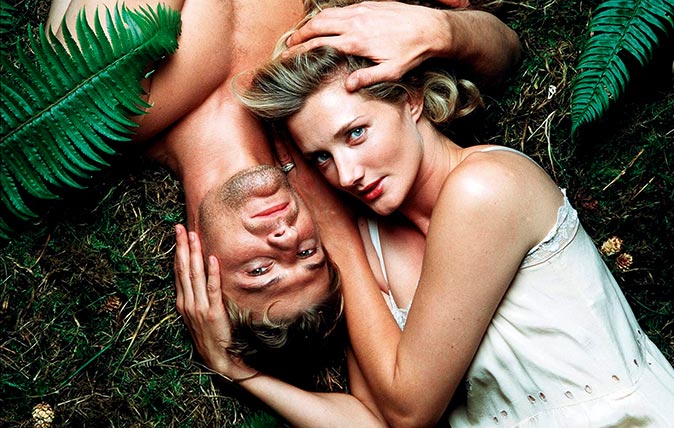
It’s been 90 years since the publication of Lady Chatterley’s Lover, but only 50 or so since the British invented sex – a conundrum that, with our national sense of irony, we can easily appreciate.
Sexual intercourse began In nineteen sixty-three (which was rather late for me) – Between the end of the ‘Chatterley’ ban And the Beatles’ first LP.
The Annus Mirabilis Philip Larkin wrote about marked the start of free love and optimism for a generation finally liberated – or, at least, getting there – from conscription, gender barriers, inhibitions and class restrictions. Authority in general was put to task after the Profumo affair and, that same decade, homosexuality was decriminalised, Britain abandoned theatre censorship and the last hanging took place. Skirts got shorter and shirts more psychedelic.
Of course, all this didn’t happen because everyone finally read about John Thomas and Lady Jane, started decorating themselves with forget-me-nots and doing it in the woods (although I’m sure some did), but there’s no doubt that the trial surrounding the 1960 publication of the uncensored novel had a seismic effect on society.
So great is the fame of the obscenity trial that it overshadows the book itself. Prosecutor Mervyn Griffith-Jones’s lack of understanding of the more delicate pieces of writing was farcical: ‘Not very easy, sometimes, not very easy, you know, to know what in fact he is driving at in that passage.’ His opening address to the jury – ‘Is it a book that you would even wish your wife or your servants to read?’ – has gone down in history.
The judge may have been on Griffith-Jones’s side, but the jury wasn’t, and he was up against Penguin Books, a publishing house that was all for the increasingly trendy common man. A chatelaine’s affair with an intelligent gamekeeper was a terrible breach of decorum for those ‘grey elderly ones’ (D. H. Lawrence’s term for his critics). Perhaps Penguin’s greatest crime was the planned price of 3/6 – within easy reach of women and the working classes.
Both sides went to battle with the full count of swear words in their arsenal (30 of which begin with f) and called on the great and the good to back their argument. Those supporting publication included Iris Murdoch, T. S. Eliot, Laurence Durrell and Aldous Huxley. At one headline-grabbing moment, Archbishop William Temple stood up in court to say that ‘Christians in particular should read this book’, because Lawrence saw sex as sacred.
The national mood was summed up by counsel for the defence Gerald Gardiner:
Exquisite houses, the beauty of Nature, and how to get the most from your life, straight to your inbox.
‘I do not want to upset the prosecution by suggesting that there are a certain number of people nowadays who as a matter of fact don’t have servants. But of course that whole attitude is one which Penguin Books was formed to fight against. 'Isn’t everybody, whether earning £10 a week or £20 a week, equally interested in the society in which we live, in the problems of human relationships including sexual relationships? In view of the reference made to wives, aren’t women equally interested in human relations, including sexual relations?’
Once acquitted, Penguin thrived. Within three months, the book had sold three million copies.
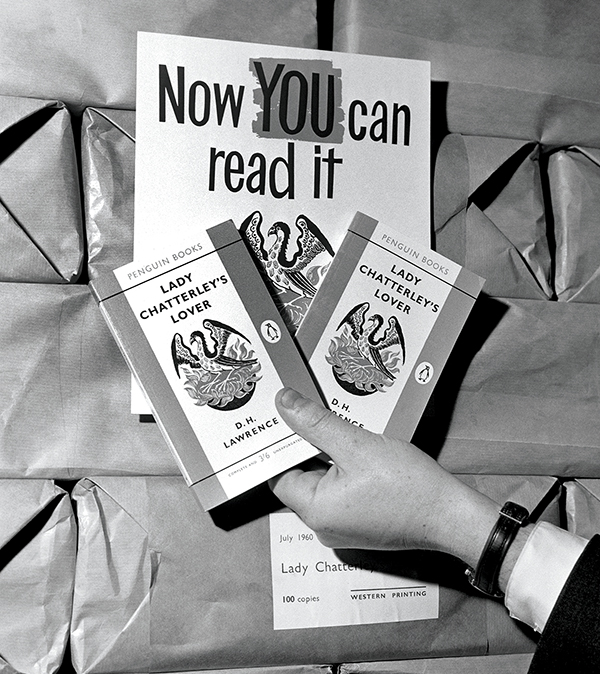
The act of love had been the elephant in the room long before the private publication of Lady Chatterley’s Lover in Florence, in 1928, after which it was banned for obscenity in most countries for decades. However, Lawrence estimated that at least 800 copies of the first edition made their way to this blessed isle. Even George V read it, in 1933 – rumour has it he confiscated his wife’s copy.
Constance and Mellors’s trysts in the woods are vital to the story, but despite Lawrence’s slightly feverish preoccupation with the physical – tuberculosis will do that to you, with the cruel accompaniment of impotence – that’s not all the novel is about. As well as being a celebration of love, Lady Chatterley’s Lover is a rather sad story, about disillusionment, loss and hope in the face of doom.
Sir Clifford Chatterley returns from the First World War ‘more or less in bits... paralysed for ever’ – the symbolism is clear, but physical injuries are not the problem. The so-called men of Constance’s acquaintance are mere shadows. They aren’t interested in women or even peace, but enjoy dismal, cynical discussions. ‘Clifford’s voice went on, clapping and gurgling… How extraordinary he was, bent there over the book, queer and rapacious and civilised… with the sharp, cold, inflexible will of some bird, and no warmth… no soul.’
Constance is lost among these remnants of manhood: ‘She wished some help would come from outside. But in the whole world there was no help. Society was terrible because it was insane.’ Eventually, she finds solace in Nature – ‘the wood was her one refuge’.
She meets Mellors, a real man back from the war, and their love tells the reader that ‘ponderous, primordial tenderness, such as made the world in the beginning’ can bring us back to Paradise. They are Adam and Eve in a post-apocalyptic Garden of Eden. Their little hut in the woods, their secret world of new life and changing seasons, is infinitely precious because it cannot last – it’s surrounded by the ever-encroaching industrialisation of the coalmines and bourgeoisie. The simplicity of their ideals is more pagan and pure than depraved.
The likes of Griffith-Jones were no doubt unnerved that adulterers could go off into the sunset. Surely, ‘the good end happily, the bad end unhappily – that is what “fiction” means’, as Miss Prism of Oscar Wilde’s The Importance of Being Earnest had it.
At the end of the book, there is a baby, love and a plan. However, as readers in 2018, we know they can’t avoid another war and the march of modernity, even if they go to the colonies. ‘The moon wouldn’t be far enough,’ writes Mellors to his beloved, ‘because even there you could look back and see the earth… made foul by men… men turned into nothing but labour-insects, and all their manhood taken away, and all their real life.’
The son of a miner from Nottinghamshire, the aspects of Lawrence’s own life that must have inspired Lady Chatterley are palpable. His marriage, to a German baroness, was loving, but tempestuous. Frustrated by his illness and impotence, his wife was unfaithful, notably with an Italian infantryman whom Lawrence had taught to read.
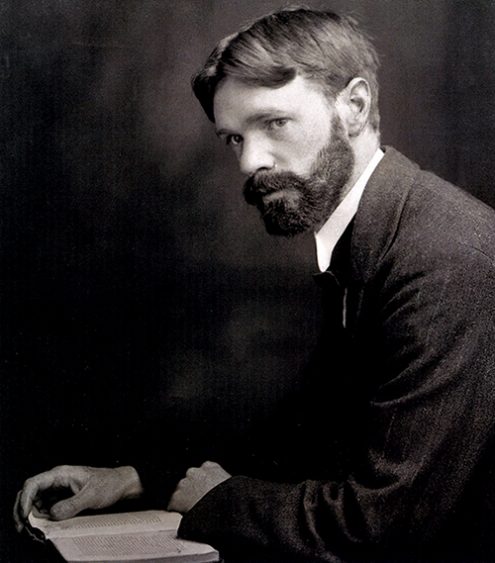
Some call the book a love letter to Frieda. She married her Mellors after Lawrence’s death in 1930, aged 44. After all: ‘We’ve got to live, no matter how many skies have fallen.’
The world has moved on and it is perhaps time that we stopped being embarrassed by four-letter words – ‘If I use taboo words, there is a reason,’ wrote Lawrence – and what is simply a fact of life. ‘In the short summer night she learned so much… She felt, now, she had come to the real bedrock of her nature, and was essentially shameless… She felt a triumph, almost a vainglory. So! That was how it was! That was life!’

Credit: Pexels /Torsten Dettlaff
Nine things nobody will tell you before you get a puppy
Get a puppy and your life will never be the same again – but not always in the ways you'd imagine.
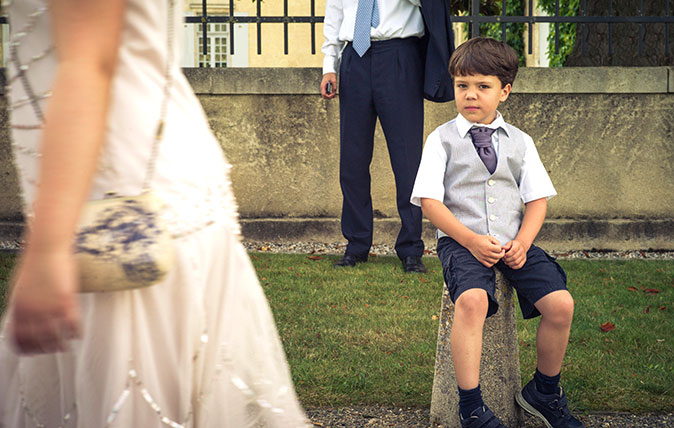
Credit: Boring wedding (Alamy)
Weddings: Why an afternoon beats an entire weekend
Getting married is, and should be, a very special day. But make sure it's only a day, says Annunicata Elwes.
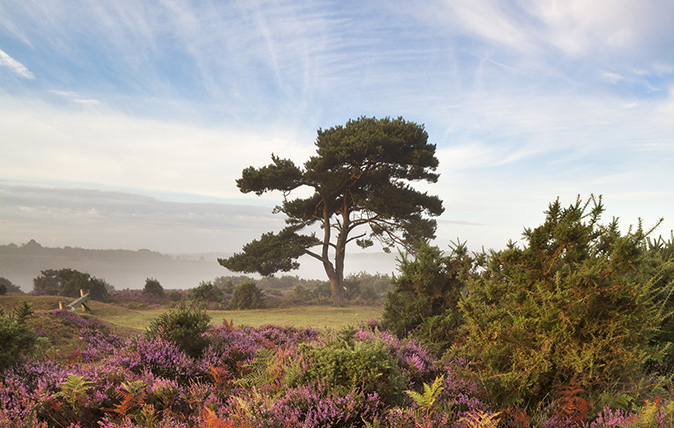
Revealed: How much extra you'll pay to live in a National Park or AONB
What price beauty? Annunciata Elwes delves into Knight Frank research to find out.
Annunciata is director of contemporary art gallery TIN MAN ART and an award-winning journalist specialising in art, culture and property. Previously, she was Country Life’s News & Property Editor. Before that, she worked at The Sunday Times Travel Magazine, researched for a historical biographer and co-founded a literary, art and music festival in Oxfordshire. Lancashire-born, she lives in Hampshire with a husband, two daughters and a mischievous pug.
